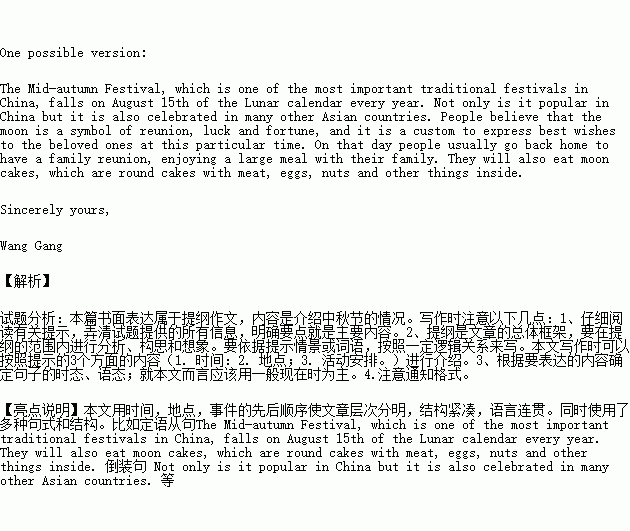根据短文内容,选择最佳答案。
What would you think if someone suggested knocking down St Paul’s cathedral to widen the road,or pulling down Big Ben to make way for a car park? It’d be ridiculous,right? But when it comes to devastation(毁灭)of the natural world,we aren’t so easily shocked.But we should be...or we’ll be in a lot of trouble!
Nature is shrinking by the day.Ancient forests are destroyed.Wetlands are becoming dry.Woodland is disappearing,all in the name of progress.This is bad in itself,but it’s devastating for biodiversity.
Biodiversity refers to the variety of plants,animals and other living things which are all inter-connected.The ecological services provided by biodiversity are vital to everyday life.The air we breathe is a product of photosynthesis(光合作用)by green plants.In fact,all life on earth exists thanks to the benefit of biodiversity.More than 90 percent of the calories consumed by people worldwide are produced from 80 plant species.And 30 percent of medicines are developed from plants and animals.Maintaining a wide diversity of species in each ecosystem is necessary to preserve all living things.
The loss of biodiversity could be devastating.“It is wrong to think that biodiversity can be reduced indefinitely without threatening humans,” said Harvard University biologist Edward O Wilson,known as “the father of biodiversity”.He warned,“We are about to reach a critical point beyond which biodiversity loss will be unavoidable.”
But what can we do? The problem is that the concept of biodiversity is so vague.People might care about giant pandas,but it is much harder to excite them about the fate of tiny sea creatures which are being boiled to death in the cooling systems of power stations along coastlines.The Guardian newspaper is trying to help.It has started the Biodiversity 100 campaign to try to convince governments around the world to take action to deal with the widespread concerns about biodiversity.This includes persuading the UK government to create a series of marine reserves to change the decrease in the sea-life caused by industrial fishing,stopping fishing sharks by the Japanese fishermen and banning the killing of dingoes in Australia,among many other things.
There is a lot to do.And we’d better act quickly if we don’t want to end up with a planet that can’t support life!
1.What does the author think of pulling down Big Ben to make way for a car park?
A.Unreasonable. B.Necessary.
C.Difficult. D.Urgent.
2.What does the underlined sentence in Paragraph 2 mean?
A.Nature is badly polluted by humans.
B.Species are becoming fewer and fewer day by day.
C.Rainforests are being cut down every day.
D.Nature is full of mysteries to humans.
3.Edward O Wilson believes that .
A.it doesn’t matter to decrease the biodiversity
B.people have done enough to preserve biodiversity
C.the situation of biodiversity is very serious
D.biodiversity loss has been unavoidable
4.What can we infer from the passage?
A.Plenty of marine reserves have been set up in the world.
B.Fishing sharks is illegal around the world.
C.It’s harmful to catch tiny organisms in the river.
D.The Guardian newspaper has done a lot for biodiversity.



 ), 并在其下面写出改加的词。
), 并在其下面写出改加的词。